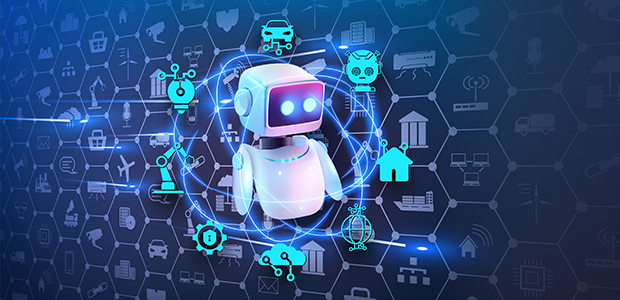
How businesses can benefit from using ChatGPT
With all the ChatGPT talks that have been going around for months now, the Conversational AI industry has experienced a rise of interest from companies and investors alike.
The Open AI’s chatbot set the record for the fastest-growing platform in January 2023 by growing to 100 million within weeks of its launch. Despite the polarising views on the new technology, businesses continue to explore how they can benefit from using ChatGPT. We decided to address the same question and asked the chatbot itself. So, here’s what we’ve learned so far.
What’s in it for Conversational AI
First of all, ChatGPT is already changing the Conversational AI industry itself: with its advanced natural language processing (NLP) capabilities the new technology is going to enable more natural and human-like interactions. Here’s what it means in simple terms:
Bots will become smarter
ChatGPT’s deep learning and language model will enable more natural, insightful and useful responses. Backed with AI-powered knowledge, bots are sure to offer more adequate responses and better understand nuanced contexts.
Real-time interactions will improve
In today's ever-changing world, customers expect immediate assistance - both from human and conversational agents. With ChatGPT, handling large volumes of customer queries and retrieving necessary information in real-time at scale will become a lot easier.
Localisation will become easier
ChatGPT's multilingual features can expand bots’ capabilities of automatically interpreting languages, which will take localisation opportunities to a whole new level. Bots will be able to recognise and converse in multiple languages without extra training.
Communication will be more proactive
ChatGPT enables virtual agents to collect and curate conversational data from multiple channels, which can be invaluable. Gathering this information results in a better understanding of user behaviour and further improves real-time interactions.
What’s in it for businesses
So, with ChatGPT adoption, bots are expected to become more human-like, which will benefit their interactions with users: from more intelligent conversations to increased customer support efficiency to higher engagement. And those are only a few business processes that ChatGPT can help revolutionise.
Higher customer satisfaction
By introducing ChatGPT-powered virtual assistants, businesses can improve overall customer experience, faster address customer queries, and be accessible to users 24/7. With conversational AI agents resolving common questions, employees concentrate on more challenging and creative work that requires a human touch.
Increased productivity
This works both ways: when chatbots and voice assistants take over repetitive tasks, support staff can help customers with more complex queries and resolve issues that require emotional involvement and creative approach. This leads to increased productivity and higher satisfaction rates among employees.
Advanced personalisation
ChatGPT helps create personalised content based on users’ preferences, interests, and purchase history, businesses can offer products and services perfectly tailored to a customers’ needs
Improved data usage
Data management is yet another business process that will benefit from integrating ChatGPT. By reducing clutter, streamlining information, and identifying critical points, the new technology allows businesses to make faster decisions, retrieve key information more easily, and use data more effectively to improve business strategies.
Faster business expansion
ChatGPT-powered bots can converse with customers in their preferred languages as well as translate conversations in real time. Meaning it will be much easier for companies to deploy multilingual bots. This, in turn, enables businesses of all scales - particularly those who cannot afford a full-scale localisation - to reach customers from different regions.
To sum it all up
Once integrated into business processes, ChatGPT technology can lead to significant improvements in several areas, such as enhancing customer service, increasing productivity, personalised content, faster business expansion, and efficient data management. With ChatGPT, companies can automate some of the repetitive tasks, which will allow human employees to focus on something more challenging. This eventually results in an increased competitive advantage and cost savings for the company. Of course, we’ll have to wait and see for viable use cases of ChatGPT transforming businesses, but the potential is undeniable.

